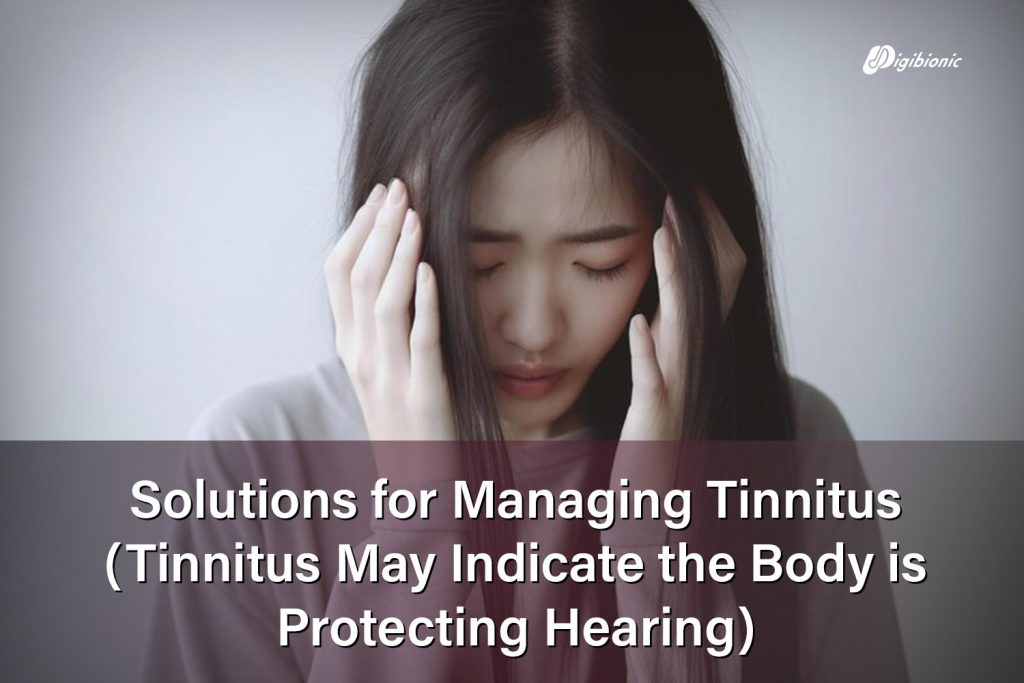
On a stormy day with heavy rain, a young man drove from home to the hospital to see a doctor. Even though he had to wait for five hours in the clinic, he didn’t complain at all—he just wanted to know why his ears were ringing throughout the night. Was it caused by a physical abnormality?
I asked him, “Besides at night, do you hear any sounds in your ears?” He replied, no, never.
“When does it happen?” I asked. He said it only occurs when he has trouble sleeping in the middle of the night. In fact, this is a case of physiological tinnitus, which occurs naturally in the human body during normal physiological activity. Most people tend to ignore it, but in very quiet situations, it can be more noticeable. Physiological tinnitus is not a disease and can happen to anyone, especially if you have trouble sleeping at night.
Another young man visited the doctor, very concerned about the ringing in his ears. His hearing was normal, but because of the tinnitus, he traveled across northern, central, and southern regions of the country seeking treatment for over a year. Despite all his efforts, he couldn’t stop the ringing.
What do people usually do when they experience tinnitus? Most often, they search for answers online first.
For patients heavily reliant on the internet, it’s often difficult to convince them otherwise. When many people experience bodily changes, their first instinct is to seek online information rather than visit a doctor immediately. Searching on Google can easily provide numerous ideas, but this often creates unnecessary fear, which does not improve the condition.
These examples show that the more patients fear tinnitus, the more anxious they become. In clinics, we often see patients who are excessively worried and exaggerate their tinnitus experience. Additionally, misleading medical advice and inappropriate online information are major factors contributing to patients’ excessive anxiety about tinnitus.
Misconceptions include:
“Tinnitus cannot be cured for life.”
“Tinnitus will make you deaf.”
“Tinnitus will cause kidney failure.”
“Tinnitus is a type of stroke in the ear.”
“Tinnitus must be treated with ginkgo and B-complex vitamins.”
These misunderstandings can lead to severe anxiety. While doctors may not always provide 100% definitive answers, their guidance significantly affects patients. Therefore, it is crucial to clarify certain misconceptions urgently.

When tinnitus first occurs, patients often don’t understand why they hear a wind-like noise in their ears, which can cause panic. If a doctor says, “If tinnitus cannot be treated, deafness will occur,” patients may feel hopeless and believe their life is over. Negative emotions can worsen tinnitus, creating a vicious cycle where tinnitus amplifies negative thoughts, pushing patients into deeper distress.
Most tinnitus improves within six months.
The statement “tinnitus will never go away for life” is misleading. In general, acute tinnitus cases often resolve naturally within six months and return to normal, similar to vertigo patients, where 99% improve within three months. Telling patients that their tinnitus will never improve only increases panic and despair.
About 85% of chronic tinnitus patients have some degree of hearing loss. While sensorineural hearing loss cannot be fully restored, the perception of tinnitus can be reduced or managed with hearing aids. Tinnitus does not originate solely from the inner ear but from the brain. Around 30 years ago, medical research confirmed that tinnitus is essentially “brain tinnitus,” demonstrated in cases where the auditory nerve was severed—tinnitus did not disappear and sometimes became louder.
Some doctors tell patients, “High-frequency tinnitus comes from the inner ear because the hair cells in the cochlea are damaged and cannot be repaired, so your tinnitus cannot be cured.” This statement is incorrect. Most tinnitus originates from the auditory centers in the brain. Even if inner ear damage is irreversible, tinnitus results from the brain’s response and protective mechanisms—similar to a scar on the body, which gradually fades and adapts over time.

Folk sayings claim, “Long-term tinnitus will lead to deafness,” and many articles have echoed this idea. Consequently, the belief that untreated tinnitus inevitably causes hearing loss has become widespread—but this is entirely false.
A Digibionic hearing aid customer shared a story about his 62-year-old aunt. She visited a local hospital to treat her tinnitus, and the doctor told her, “If your tinnitus persists for a long time, you may go deaf, and curing tinnitus completely is very difficult!” Because she had already lost hearing in her left ear since childhood, this comment terrified her. She worried that her right ear would also lose hearing, fearing she could no longer communicate with the outside world. Her anxiety caused sleepless nights and worsened her tinnitus.
Later, she sought care at another hospital. After a thorough examination, the doctor reassured her that tinnitus does not cause deafness. Hearing this, she felt an enormous relief and returned home happily, free of worry. One month later, when she revisited the doctor, her tinnitus had significantly improved.
The myth that long-term tinnitus causes deafness originates from traditional Chinese medicine. Ancient texts suggested that “deafness begins with prolonged tinnitus,” which has been misinterpreted and passed down over generations.
In reality, tinnitus has various causes, from ear-related issues to other bodily conditions. Importantly, tinnitus itself does not harm hearing. On the contrary, it may act as a protective signal, alerting the brain to pay attention to auditory health. Statements like “prolonged tinnitus will cause deafness” or “9 out of 10 will go deaf” are misconceptions rooted in traditional medicine.
The key to managing tinnitus is eliminating the fear response. If a patient’s anxiety cannot be addressed, they may fall into a vicious cycle of excessive worry, which can worsen physical reactions and perpetuate tinnitus.
Let people experience the beauty of hearing aids and hear the sounds of their family’s love once again.
If you wish to share that love with Digibionic, please contact us…

3 Ways to Choose a Hearing Aid: Expensive hearing aids may have many features, but a high-priced hearing aid might not be suitable for you!
Why do hearing aid prices vary by model? One factor that increases the price is the technology, research and development, as well as the capabilities of the hearing aid.
Currently, it is found that up to 80% of seniors experience hearing loss due to age-related auditory nerve degeneration, typically starting between the ages of 60 and 80.
เราใช้คุกกี้เพื่อพัฒนาประสิทธิภาพ และประสบการณ์ที่ดีในการใช้เว็บไซต์ของคุณ คุณสามารถศึกษารายละเอียดได้ที่ นโยบายความเป็นส่วนตัว และสามารถจัดการความเป็นส่วนตัวเองได้ของคุณได้เองโดยคลิกที่ ตั้งค่า